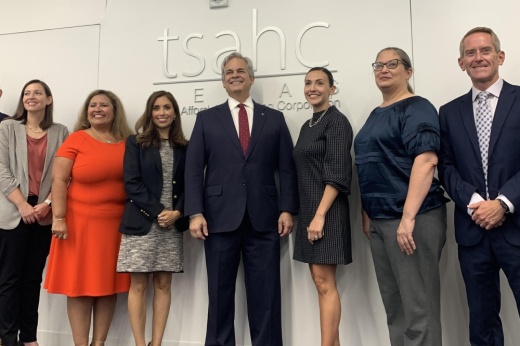Those community groups include Austin Area Urban League, the Cady Lofts development team, Caritas of Austin, Family Eldercare, Integral Care and SAFE Alliance.
Training for these community groups will go from September to December. In January, teams will present their projects they developed during training to funders.
This training represents a step closer to fulfilling the city’s plan to house 3,000 unsheltered residents within three years, which was first announced in June 2021.
This plan would more than quadruple the amount of current permanent housing options in Austin and cost approximately $515 million, Adler said.
Adler said the city has reached over 80% of its total funding goal due to American Rescue Plan Act dollars that were given to the city for relief during the pandemic as well as state funding and private funding from St. David’s Medical Center and other donors.
Rather than dividing the city’s over $200 million ARPA dollars among the many community issues that need attention, Adler said he wanted to use it primarily to fund homelessness prevention with secondary priorities being child care and workforce development.
“I think that homelessness is an Achilles' heel for our city. All we have to do is look at Los Angeles, Portland, Seattle, to look at an otherwise successful city that [fails to address] that challenge,” Adler said.
Data from a point-in-time count shows that about 13,368 people experienced homelessness in King County in Seattle in 2022, according to the King County Regional Homeless Authority.
Austin—whose total population is marginally higher than Seattle’s—has around 4,000 unhoused residents, according to Ending Community Homelessness Coalition, a nonprofit that uses research-based strategies to end homelessness in Austin and Travis County.
“If you’re going to actually end homelessness, you’re going to have to do it while the scale of that city is manageable,” Adler said.





